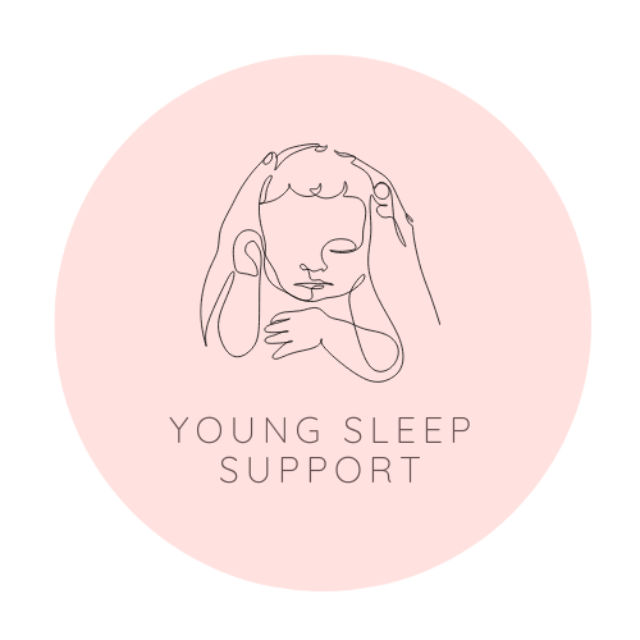5 reasons your child's sleep isn't improving (and what to do instead of sleep training)

You've tried everything.
You're following wake windows to the minute. You've adjusted naps. You've tweaked bedtime. You've read all the blogs, joined all the Facebook groups, and tried every tip that promised to help.
But your child's sleep still isn't improving.
And now the pressure to sleep train is everywhere. Friends are telling you it's the only way. Your pediatrician might be hinting at it. The Instagram ads won't stop following you around.
Yet something about it doesn't feel right to you.
Here's what I want you to know: Healthy sleep doesn't require sleep training. But it does require understanding what's really going on.
Many common sleep disruptions aren't because your child is being "difficult" or because they need to learn to "self-soothe." Instead, they stem from biological rhythms, developmental progressions, and emotional regulation needs.
The problem? The most widely shared sleep advice often oversimplifies sleep science and ignores individual needs.
If you're struggling and nothing seems to be working, here's what might actually be happening (and what you can do instead of sleep training).
1. You're following a generic sleep schedule meant for someone else's child
This is probably the most common issue I see with families I work with.
You search for help online and come across sleep schedules based on specific wake windows or hours of sleep. These charts look authoritative and official. They promise that if you just follow them exactly, your baby will sleep.
But here's the thing: those charts are based on averages, not guarantees.
Most sleep charts list the maximum recommended sleep, not what every child actually needs. In reality, children's sleep needs vary widely. Some babies naturally function well on 11 hours of total sleep a day, while others need 15 hours.
The idea that every 8-month-old should nap twice a day for exactly 3 hours total? That's an oversimplification.
And when a schedule is off for your specific child, you'll see signs like:
✅ Split nights (your child wakes for long periods overnight, sometimes for hours)
✅ Frequent early wakings (before 6am, no matter what you do)
✅ Bedtime resistance (they fight sleep because they aren't tired enough yet)
What to do instead
Instead of forcing your child into someone else's schedule, try this:
Observe your child's natural rhythms. When do they naturally get tired? When do they seem most alert? What does their body actually need?
Adjust wake times and naps based on their cues, not a strict chart. If your baby is fighting bedtime every night, they might not be tired enough. If they're waking at 5am, they might be getting too much daytime sleep.
Use a sleep log for a week to find patterns instead of forcing a set schedule. Track when they sleep, how long, and how they seem during wake times. The patterns will tell you what they actually need.
I worked with a client who was following an 8-month-old schedule with a 7pm bedtime. Her baby fought bedtime every single night and woke at 5am like clockwork. After tracking his natural rhythms, we moved bedtime to 8pm and shortened daytime naps slightly. Within a few days, he began waking at 6:30am naturally, and bedtime became peaceful.
2. Sleep pressure isn't lining up with sleep needs
You've probably heard the phrase "sleep breeds sleep."
And while there's some truth to that (overtired babies do struggle), too much sleep can also backfire.
Here's what's actually happening: If a child is already well-rested within their 24-hour cycle, forcing more sleep won't help. It'll just create resistance.
Let's talk about the overtiredness myth for a second. You've been told that overtired babies won't sleep, right? But that's not quite accurate.
Being overtired causes stress hormones (like cortisol) to rise, which leads to dysregulation. Many overtired babies do fall asleep, but their nervous system remains dysregulated, causing more frequent waking and restless sleep.
On the flip side, too much daytime sleep can lead to more night wakings or early rising because their sleep needs were already met during the day.
What to do instead
Instead of assuming "more sleep is always better," focus on total 24-hour sleep balance.
If your child struggles with bedtime resistance or split nights, try trimming naps slightly and see how they adjust. Sometimes less daytime sleep actually leads to better nighttime sleep.
If they're overtired, focus on nervous system regulation (lots of connection, low-stimulation wind-down time, calming activities) instead of obsessing over wake windows.
I worked with the parents of a 14-month-old who was napping 3.5 hours daily, yet waking at 4am every night. His total sleep was 14.5 hours (which is high for his age). We shortened naps to 2.5 hours, and his morning wake time shifted to 6:30am within a week.
3. Your child's sleep environment is sending mixed signals
Sleep is highly sensory-driven. Light, temperature, noise, and consistency all play a role in how well your child sleeps.
Here's something that often gets misunderstood: Sleep associations (like nursing to sleep or rocking) aren't inherently bad. If they're working for you, there's absolutely no need to change them.
But for some children, if they wake up in a different environment than they fell asleep in, it can be disorienting. Think about it: You fall asleep in your bed, but wake up on the kitchen floor. You'd be confused too, right?
Parents sometimes assume their child "hates the cot" when it's actually about comfort, security, or environmental consistency.
What to do instead
Ensure environmental consistency. The space where they fall asleep should feel the same if they wake in the night. Same lighting, same temperature, same sounds.
Follow safe sleep guidelines while making their sleep space feel calm and comfortable. This might mean breathable sleep sacks, room temperature adjustments (18-20°C is ideal), or a consistent bedtime routine.
Try small adjustments first before assuming something bigger needs fixing. Sometimes it's as simple as adding blackout curtains or white noise.
I worked with a toddler who struggled to transition to their own sleep space. Once we adjusted the room lighting and temperature to match what they were used to (and kept a consistent bedtime routine), sleep improved significantly.
4. Emotional and Developmental Changes Are Affecting Sleep
Here's something that doesn't get talked about enough: Sleep "regressions" aren't bad. They're a sign of brain development.
Separation anxiety peaks around 9-10 months and again at 18 months, which can lead to increased wake-ups. Milestones like crawling, walking, or talking cause temporary sleep disruptions because your child's brain is working overtime processing new skills.
Sleep is deeply tied to emotional security and nervous system regulation. A child who is learning a new skill or feeling anxious about separation will naturally seek more comfort at night.
This isn't a problem to fix. It's a normal part of development.
What to do instead
Instead of trying to "fix" regressions, support them.
During the day, offer extra connection. Baby wearing, skin-to-skin contact, floor time playing together. This helps them feel secure, which often translates to better sleep at night.
Expect temporary wake-ups and respond with calm reassurance rather than trying to "correct" the behaviour. Your presence is regulating for their nervous system.
One of my clients had a toddler who suddenly started waking every two hours at 18 months. We added extra connection time before bed (reading together, cuddling, talking about the day), and the wakings reduced within a week.
5. You're focused on independent sleep before your child Is ready
This is a big one. And I know it can also be a hard one to hear.
Many parents feel intense pressure to have their baby "sleep through the night alone." Sleep training culture makes parents fear that supporting their child equals creating bad sleep habits.
But here's the reality: Sleep is a developmental process, not a skill that can be forced.
Children gradually develop sleep independence when they're emotionally and neurologically ready. Some sleep through early, while others take 2-3 years to consistently sleep all night. Both are completely normal.
Pushing for independence before your child is ready doesn't speed up the process. It just creates stress for everyone.
What to do instead
Normalise nighttime comfort needs. It's biologically normal for young children to need support at night.
Find sustainable, safe ways to support sleep that work for your family. This might be room-sharing, comforting touch, or gentle sleep associations that feel manageable for you.
Trust that independence comes naturally when needs are met, rather than forcing it early. I've seen this play out hundreds of times with my clients. The families who respond to their child's needs consistently often see independence emerge more smoothly than those who try to force it.
I worked with a family who transitioned their baby from a bassinet to a cot near their bed. Their child slept more peacefully with the comfort of a nearby presence, and over time, they naturally became more independent at their own pace.
It's not about "fixing" sleep. It's about understanding it.
Sleep isn't something that needs to be "trained." It evolves naturally when a child's biological, emotional, and environmental needs are met.
If your child's sleep isn't improving, it's not because you're doing something wrong. It's because mainstream advice often ignores what actually matters: your individual child's needs, temperament, and developmental stage.
You don't need to sleep train to get better sleep. You just need to understand what's really going on and make gentle adjustments that honour both your needs and your child's.
Because you deserve rest. And your child deserves support.
And with gentle sleep coaching, you can have both 💛
Stay connected with news and updates!
Want more gentle sleep magic, epic freebies and support to get back your sleep and sanity, straight to your inbox? Check the box and join 2000+ others in our email community!
We hate SPAM. We will never sell your information, for any reason.


